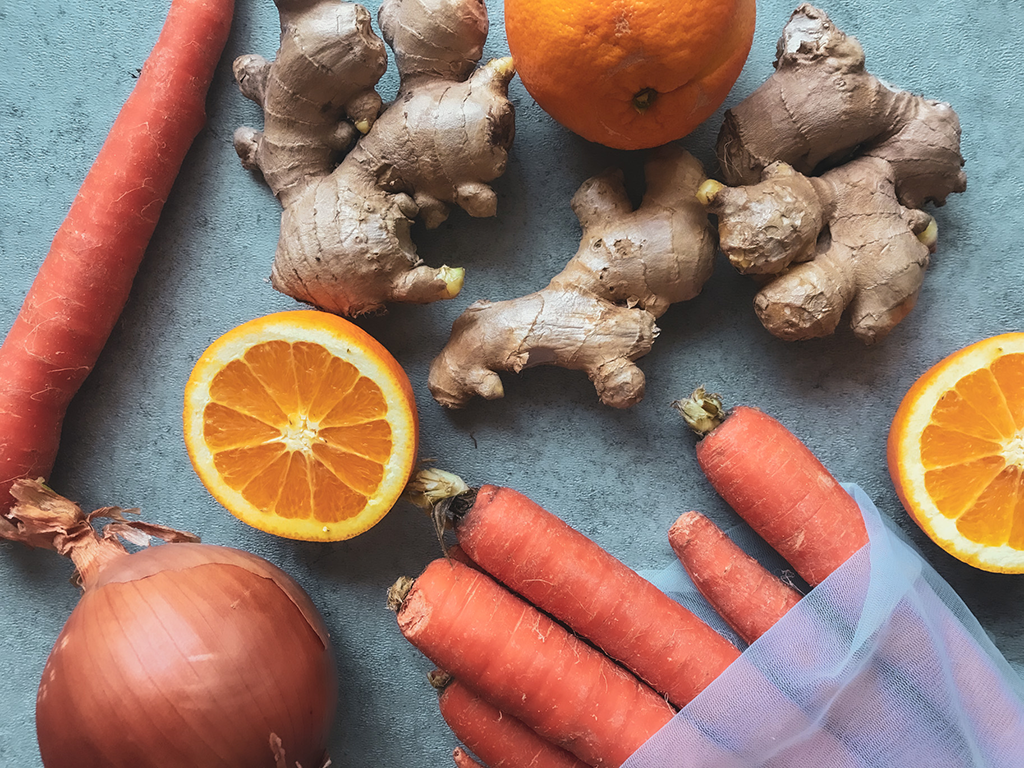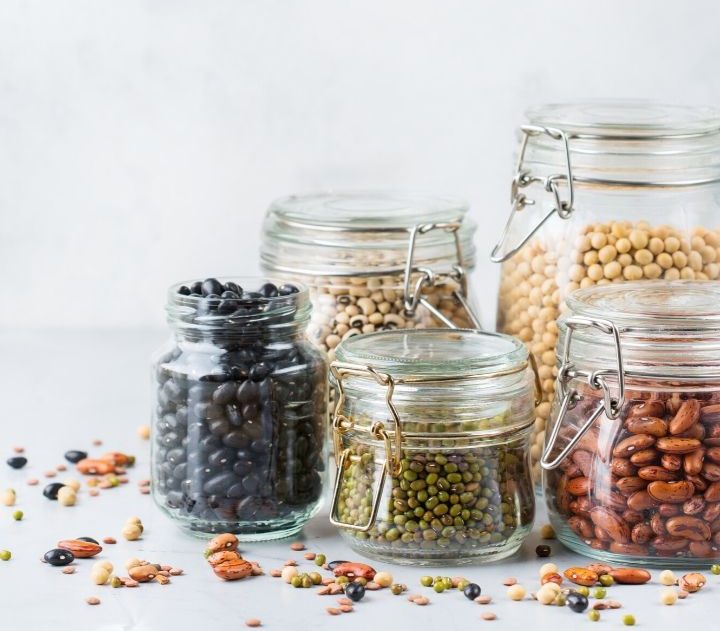
Is a Vegan Diet Healthy? 6 Tips on How To Be a Healthy Vegan
Most people will assume that vegans are either the healthiest people in the world or that they will eventually shrivel up and die from a lack of protein. But it’s not that simple. If you’re wondering if a vegan diet is healthy, here are 6 tips on how to be a healthy vegan.
Truthfully, there are definitely ways to do the vegan thing wrong, and just because you’re not eating animal products doesn’t automatically mean that you’re eating healthy. If all you’re eating is highly processed mock meats and french fries, for example, you are not doing your body any favors and you can run into serious health issues.
That being said, eating a plant-based diet can be incredible for your health, and multiple studies show that it’s the best diet in preventing and even reversing, chronic diseases such as heart disease.
The last thing anyone wants after making a beautiful commitment to go vegan is to have to revert back because you started experiencing negative side effects. So here are some 6 tips on how to be a healthy vegan and make sure you’re on the right track toward longevity on this lifestyle.
1. Eat, eat, eat
The first tip I give anyone when they want to go vegan is to eat your heart out.
I think a super common reason why people might report feeling weak on a vegan diet is because they simply aren’t eating enough.
Meat and dairy, especially when they are the cornerstone of your diet, make up a bulk of your calories. When you remove all those calories from your diet, you have to make it up with plants, which are much less calorically dense.
When I first went vegetarian, I felt like I was starving. I ate from the time I woke up to the time I went to bed just because my diet before was so meat-heavy. Now, as a vegan, I rarely eat breakfast, but I eat wholesome lunches and dinners that keep me full and much healthier than I was before.
So, don’t be afraid to eat, my friend, especially when you’re just starting out. If you’re eating primarily clean, whole food ingredients, your body can take it all.
2. Eat the rainbow
We all know that we should be eating our greens, but that shouldn’t be the only color on your plate.
When building your meals, challenge yourself to be colorful. Every color in nature has its own unique set of health benefits that we should all be taking advantage of on a regular basis.
Find your favorite foods in these colors and try incorporating them into your next meal. If you find it difficult to consume all these colors regularly, try them in a smoothie or juice!
Red:
- Health benefits: Important for heart and lung health, protects against cancer-causing free radicals
- Foods: tomatoes, strawberries, cranberries, cherries, beets, red onion, red peppers
Orange/Yellow
- Health benefits: High in vitamin A, essential for strong immunity, eye health, skin health, good digestion, brain function
- Foods: sweet potatoes, carrots, ginger, oranges, lemons, orange and yellow peppers, bananas, mangos
Green
- Health benefits: Detoxification, supports liver function, fight against carcinogens, high in calcium (dark leafy greens), high in vitamin C, high in vitamin K
- Foods: avocado, spinach, kale, broccoli, kiwi, green apple, sprouts, cabbage, herbs, green tea,
Blue/Purple
- Health benefits: High in antioxidants, fight against early signs of aging, prevents blood clots
- Foods: grapes, blueberries, eggplants, blackberries, elderberries, plums, purple cabbage
White/Brown
- Health benefits: helps support healthy bones and arteries, anti-tumor properties
- Foods: garlic, onions, cauliflower, leeks, mushrooms
3. Nuts and seeds are your best friends
Some people make fun of vegans for eating “bird food” or “rabbit food,” which is so not true!
But in the case of nuts and seeds, you gotta own it!
If you saw my top 10 Vegan Pantry Essentials, you’ll know nuts and seeds are a godsend for vegans. They are high in protein, healthy fats, omega-3 and 6s, and iron – all things that can be difficult to get from fruits and veggies alone.
Get in the habit of always having these superfood seeds in your pantry and adding them to all your meals, snacks, and smoothies:
Hemp seeds
- Just 3 tbsp has 9.5g of protein, 2.8g of omega-3s (253% RDI), 8.2g of omega-6s (68% RDI), and 2.4mg of iron (13% RDI). Add them to your smoothies, on top of your avocado toast, peanut butter toast, and salads.
Chia seeds
- Just 1 tbsp has 1.6mg iron (9% RDI) and 1.8g of omega-3 (162% RDI). Blend them into your smoothies or make chia seed parfait.
Flax seeds
- Just 1 tbsp has 1.6g of omega-3 (145% RDI).
Walnuts
- Just 1 oz has 2.6g of omega-3 (234% RDI) and 10.8g of omega-6 (89% RDI).
Nutrition facts are taken from cronometer.com.
4. Get to know your blood tests
This is a must, no exceptions. If you want to know how to be a healthy vegan, you need to get blood tests done at least once a year to see where your levels are at.
Be honest with your doctor about any changes to your diet so that they can order the appropriate blood tests and help you fix any levels that may be running low. Make sure that you are being tested for thyroid levels, B12, and iron.
Knowledge is power, and the more informed you are about your own body and how it’s responding to a vegan diet, the better you can prevent any potential health issues.
5. Supplement where necessary
This goes hand in hand with blood tests. You get blood tests to know where you’re lacking and where you need to supplement.
Everybody reacts differently to a vegan diet, so different supplements are required for everyone. Consult with your doctor about what supplements to take if you’re unable to get them through food.
These are common supplements that most vegans will look into taking:
Vitamin D3
- Most people – vegan or not – are low in vitamin D, but it is important for the absorption of other nutrients. Since we can’t get it from dairy products, ask your doctor for the best D3 supplement.
Vitamin B12
- A very common deficiency in vegans since there are limited sources of B12 outside of animal products. It’s very important to get a good B12 supplement*, as it supports your red blood cells and nervous system. You can also get B12 from fortified vegan food, such as nutritional yeast.*
Zinc
- The best supplement for immunity! Zinc* is awesome for preventing sickness but it should only be taken once or twice a week, as it can affect iron absorption. Be mindful of the RDI on the bottle and do not exceed 100% DV every day.
Iron
- People’s main concern with going vegan is usually protein, but in my opinion, it should be iron. You can get ample amounts of iron from dark leafy greens and seeds, but it can be trickier to absorb for some people. Ask your doctor for the best iron supplements if you’re hitting low.
Omega-3
- If you read number 3, you’ll see you can get tons of omega fatty acids from nuts and seeds, but EPA and DLA omega-3 fatty acids are only present in fish and algae. Therefore it’s important to have a vegan supplement* for forms of omega-3s that you can’t get from nuts and seeds.
Note that there are thousands of supplements on the market, but not all of them are good (it’s very easy to fake reviews these days!). If you can’t get a recommendation from your doctor and have to research different brands on your own, I highly recommend you look at third-party lab testing scores for whatever supplements you buy – Labdoor.com is great for this.
*Affiliate links. I linked the supplements I use and recommend for B12, zinc, and omega-3, but always do your own research as well!
6. Make veganism work for you
Lastly, the secret on how to be a healthy vegan is to not get caught up in the specifications of what a “vegan” is.
Yes, some vegans will come running with torches to correct anyone who does something “wrong” on this lifestyle. But seriously, pay no mind to them.
I believe that in order to make this lifestyle last, you have to do what works best for you.
If going vegan for you means eating plant-based 70% of the week, then I think that’s amazing! Or maybe you’ll eat the vegetarian option if there isn’t a vegan one available – been there, done that.
If you find beauty in this lifestyle and want to make it part of your own, then any step towards being vegan counts, and I think it’s a shame that some vegans out there are so caught up in the technicality that they end up discouraging people from even trying this lifestyle.
Do what’s right for you and your body. Any choice towards a plant-based diet counts and should be celebrated!





